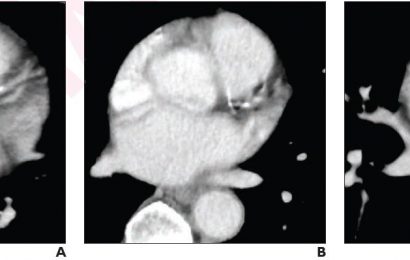
Cases of “broken heart syndrome” have increased during the COVID-19 pandemic, according to a new, small study.
The syndrome, more formally known as takotsubo or stress cardiomyopathy, produces symptoms that feel like a heart attack — weakened heart muscles, shortness of breath and chest pain. But it is instead caused by physical or emotional stress that leads the heart muscles to dysfunction, and it is far less deadly. Most patients recover in a few days.
Researchers from the Cleveland Clinic say that they have “found a significant increase” in patients with broken heart syndrome over the last four months, compared to previous years. Between March 1 and April 30, cardiologists saw 258 patients with acute coronary syndrome, and of those, 7.8 percent had broken heart syndrome, compared to 1.7 percent prior to the pandemic.
The researchers also said that the patients needed longer recovery time in the hospital compared to pre-COVID-19 cases, though the mortality rate remained the same. And none of the patients tested positive for COVID-19.
“The COVID-19 pandemic has brought about multiple levels of stress in people’s lives across the country and world. People are not only worried about themselves or their families becoming ill, they are dealing with economic and emotional issues, societal problems and potential loneliness and isolation,” said Dr. Ankur Kalra, a cardiologist at Cleveland Clinic who led the study, published in JAMA Network Open on Thursday, in a press release. “The stress can have physical effects on our bodies and our hearts, as evidenced by the increasing diagnoses of stress cardiomyopathy we are experiencing.”
The study, however, was small, and the researchers acknowledged that the topic should be studied in other parts of the country to get a better sense of how COVID-19 is affecting people's well-being. And a takotsubo expert, who was not involved with the study, told CNN that he questioned the design of the study, which only included people who already had acute coronary syndrome.
"It's well-known that patients quite frequently get takotsubo syndrome at times of extreme stress or during natural disasters," Dr. John Horowitz, an emeritus cardiology professor at the University of Adelaide, told the outlet. "But there are problems with the way the study was designed. I don't believe all of these cases are Takotsubo. It's as simple as that."
Horowitz added, though, that he agreed with the hypothesis that takotsubo cases have increased during COVID-19.
The researchers said that their finding show that the pandemic has been unhealthy for everyone, even those who have not contracted COVID-19.
“While the pandemic continues to evolve, self-care during this difficult time is critical to our heart health, and our overall health,” said Dr. Grant Reed, senior author on the study, said in the press release. “For those who feel overwhelmed by stress, it’s important to reach out to your health care provider. Exercise, meditation and connecting with family and friends, while maintaining physical distance and safety measures, can also help relieve anxiety.”
Source: Read Full Article


